Can you mix bed sheets? Yes − here's the secret to doing it stylishly
I asked bedding designers how to mix bed sheets by color and material to create a beautiful bespoke bedspread

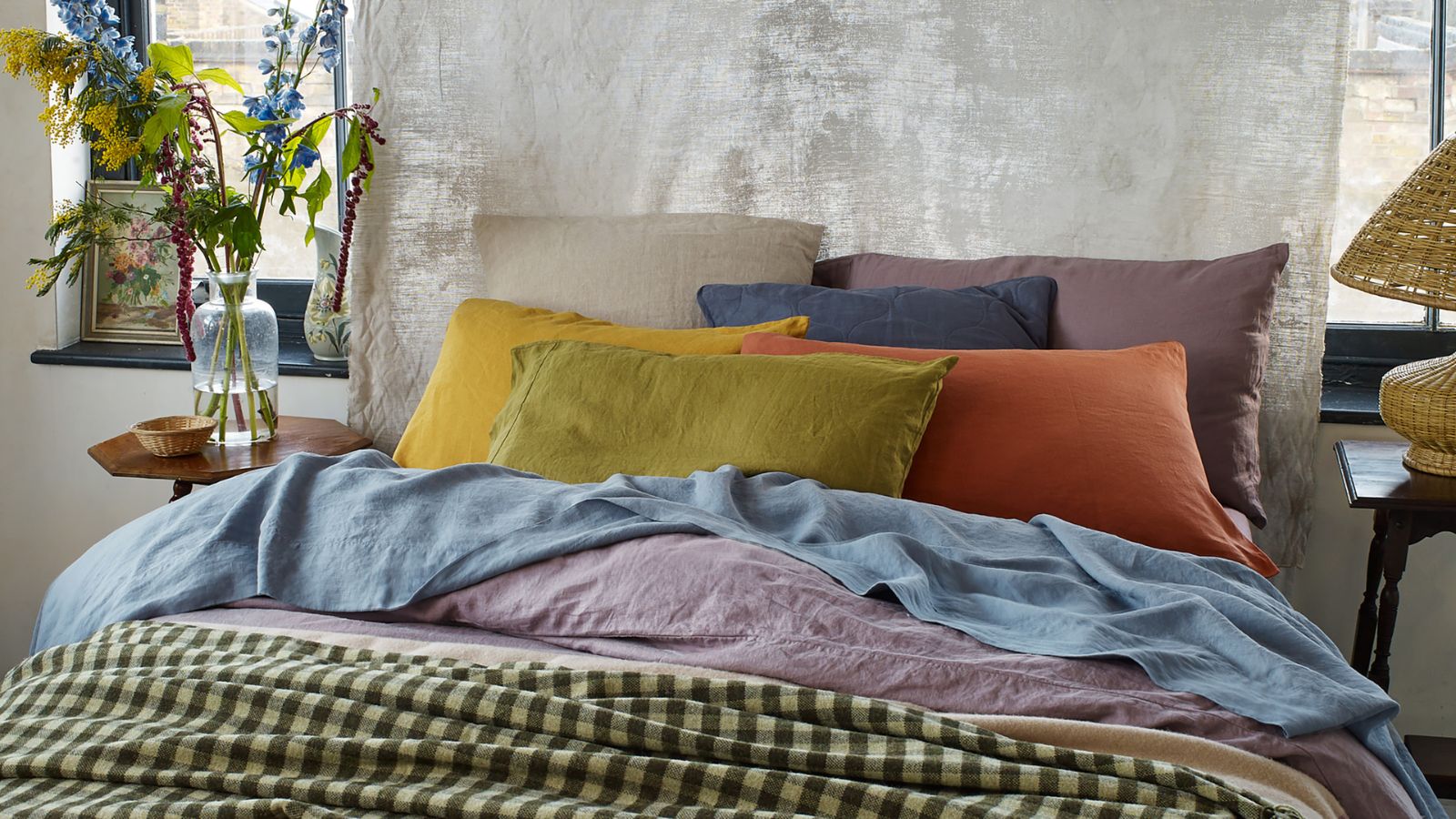
Design expertise in your inbox – from inspiring decorating ideas and beautiful celebrity homes to practical gardening advice and shopping round-ups.
You are now subscribed
Your newsletter sign-up was successful
Want to add more newsletters?

Twice a week
Homes&Gardens
The ultimate interior design resource from the world's leading experts - discover inspiring decorating ideas, color scheming know-how, garden inspiration and shopping expertise.

Once a week
In The Loop from Next In Design
Members of the Next in Design Circle will receive In the Loop, our weekly email filled with trade news, names to know and spotlight moments. Together we’re building a brighter design future.

Twice a week
Cucina
Whether you’re passionate about hosting exquisite dinners, experimenting with culinary trends, or perfecting your kitchen's design with timeless elegance and innovative functionality, this newsletter is here to inspire
One of the best ways to enhance your bedroom with a bit of personality is to mix and match your bed sheets. You can pick and choose pieces from your favorite bedding bundle to create a sheet set that meets your sleep needs and achieves your stylistic vision.
There are so many methods for mixing bed sheets. If you're a little tired of plain white sheets, you could spice things up with a bold duvet cover or a brightly colored throw. If you live in a temperate climate, you could pair warmer materials with cooler ones to reach your optimal temperature.
Once you learn how to mix bed sheets, you can create a bespoke 'bedscape' that speaks to your style and changes with the seasons. If you feel in need of inspiration, then you're in luck: I asked bedding designers and textile manufacturers how best to mix bed sheets. To get started, all you need is a few sets of the best bed sheets.
Can you mix bed sheets?
Before we begin, a word of warning: just because you want to mix and match your bed sheets by color or material doesn't mean you should mix and match them by size. It might sound obvious, but you'd be surprised how often it happens. In fact, pairing an oversized fitted sheet with an undersized flat sheet, or vice versa, is one of the biggest bed sheet mistakes you can make.
How to mix bed sheets by color
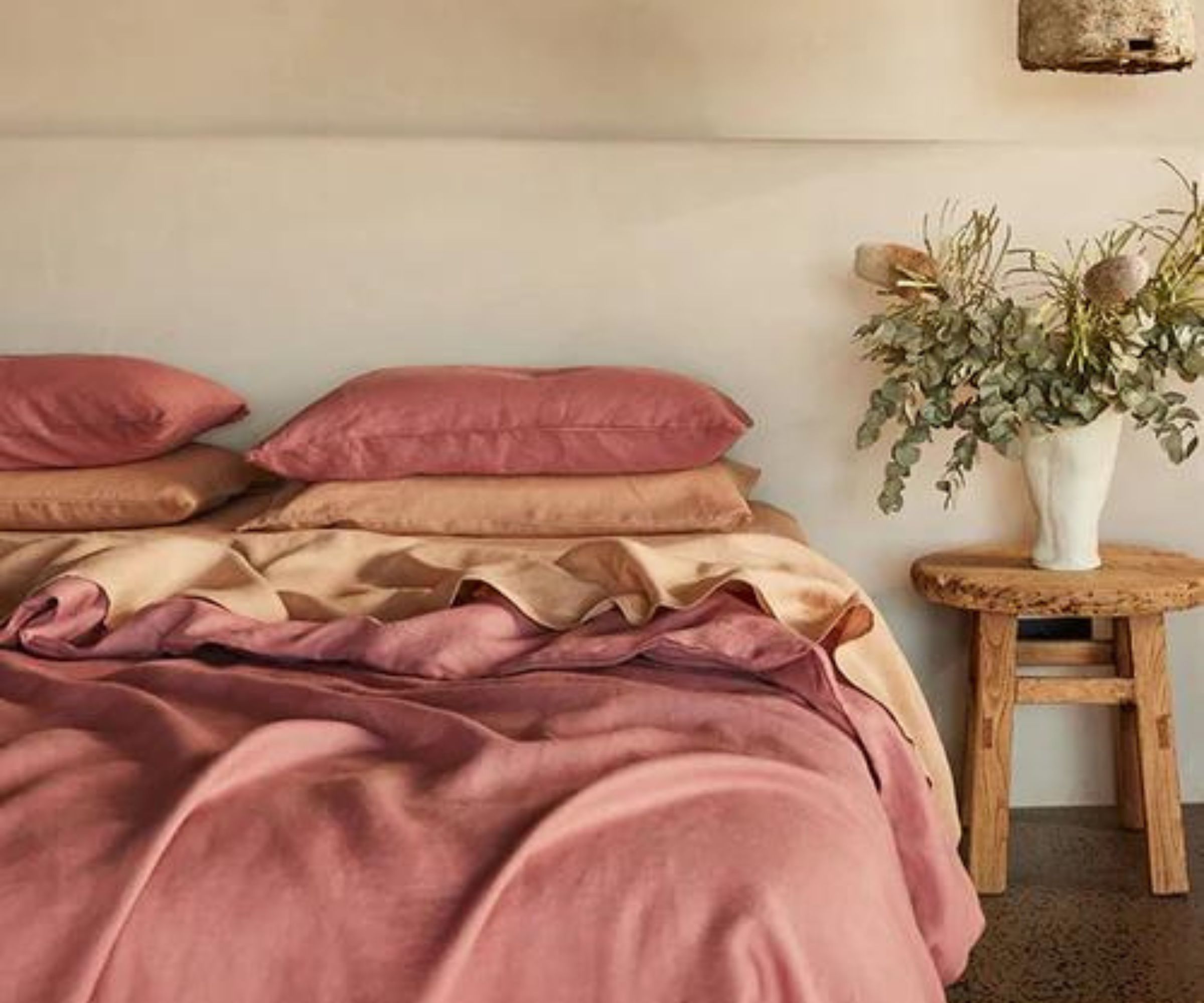
Now, don't get me wrong: the best white bed sheets are clean and classic, designed to complement any and every bedroom color palette. If you're keen to switch up your sheets, but you don't want to stray too far from tradition, you could try to incorporate natural, neutral hues, such as beige, tan, and oatmeal.
That's how Heidi Luber would do it, anyway. As the founder and owner of Lubertex, the premier bedding and bath brand, Heidi works closely with interior designers at five-star hotels and luxury spas. Naturally, she pays attention to their bedspreads, and she's noticed that 'hotels are starting to move away from the all-white look to play with shades of creams and beige. Mixing and matching shades helps to create a high-end look and makes bedding stand out a bit more than the standard all-white'.
Once you've established a color scheme that works well with your room color ideas, it's time to layer your shades. 'Another trend I've spotted is "triple sheeting", where instead of a duvet cover, hotel housekeeping staff are using three sheets,' Heidi reveals: 'one fitted sheet; a flat sheet under the duvet; and then a top sheet over the duvet. Not only does this save time, since you don't have to stuff a duvet cover, but you can also play around with fun top sheets and mix and match to create a unique combination'.
Design expertise in your inbox – from inspiring decorating ideas and beautiful celebrity homes to practical gardening advice and shopping round-ups.
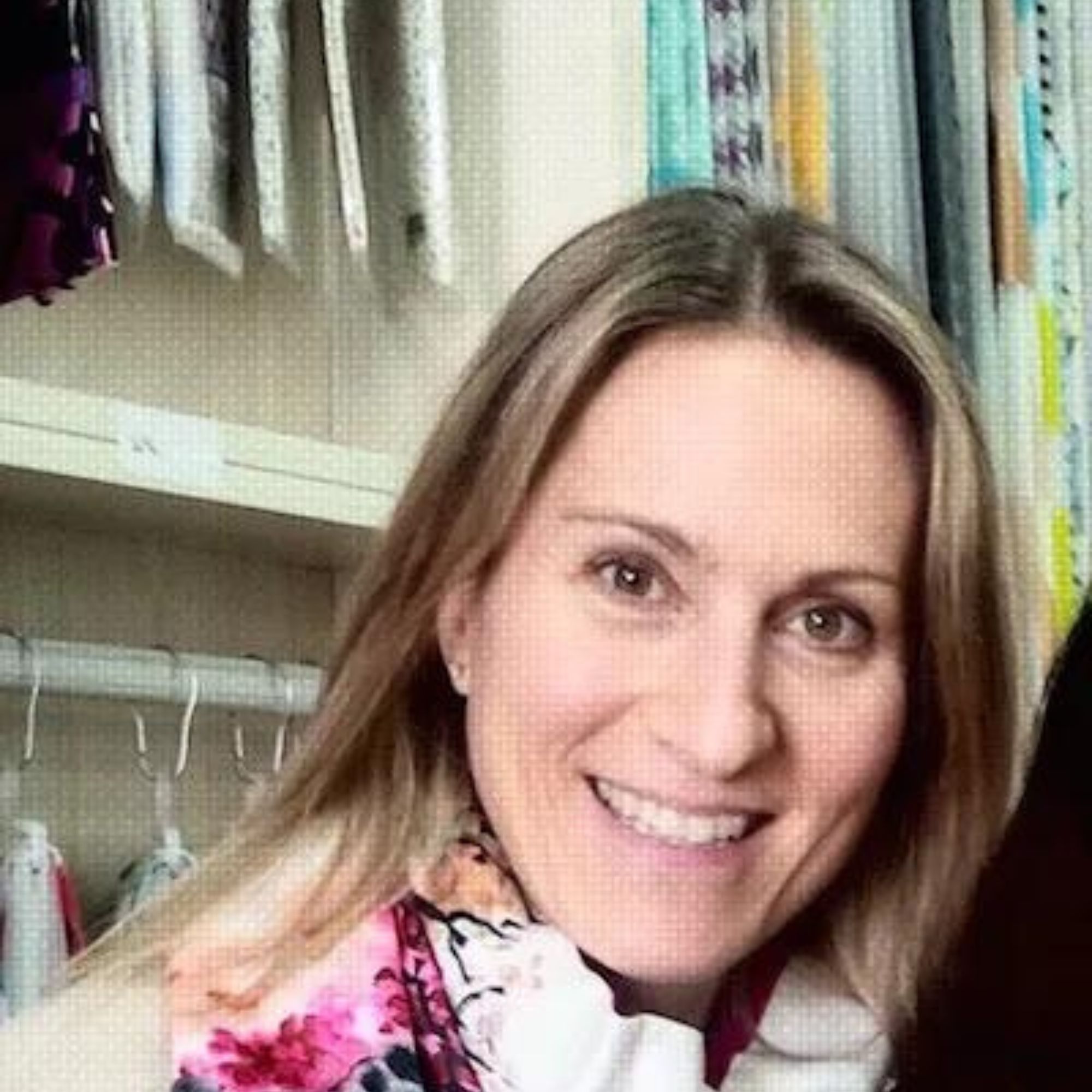
Heidi is the founder, owner, and President of Lubertex, a premier textile manufacturer that supplies high-end hotels and luxury spas across North America,
If you're keen to experiment with colors, or you'd like to play with prints and patterns, then I recommend you shop with one of three specialist sleep stores. Magic Linen specializes in bright block colors, while Piglet in Bed is better for softer shades: I love their Sage Green Bedtime Bundle. To create a custom bedspread, you could head to Bed Threads to build your own bundle.
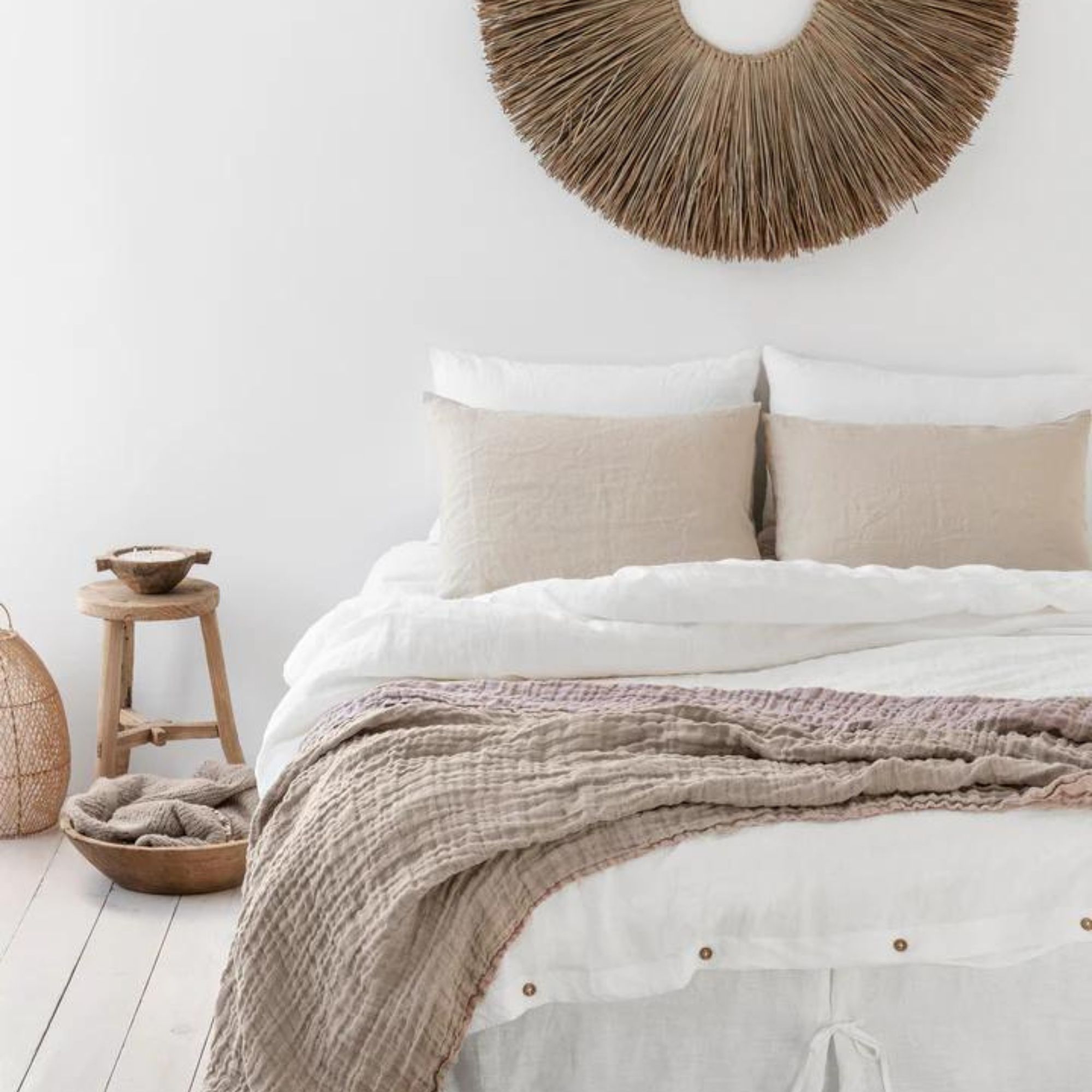
This is the sort of bedding that Heidi associates with high-end hotels and luxury resorts. If you're looking to spice up your white bedroom ideas, I recommending pairing oatmeal pillowcases and neutral throws with bright white sheets.
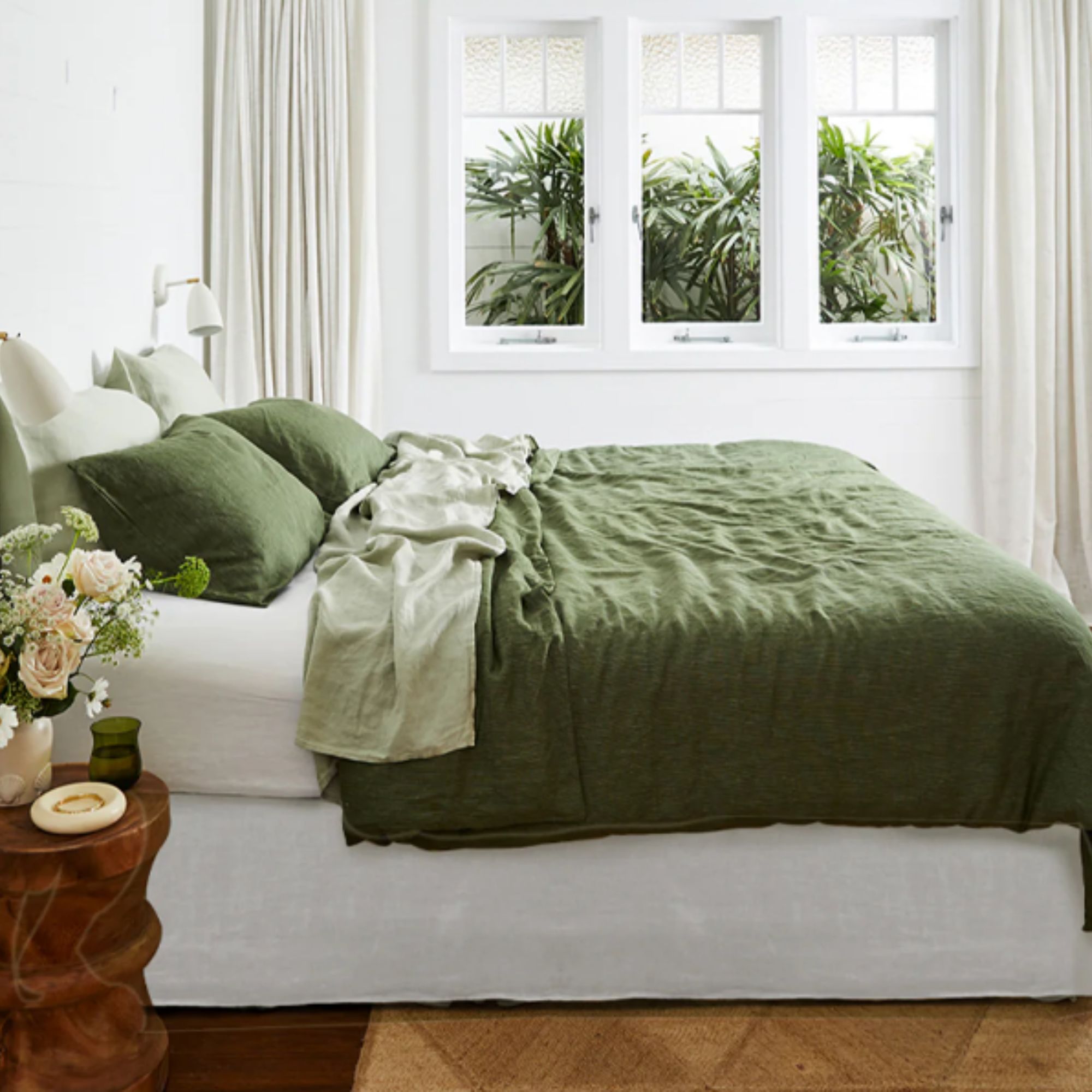
If you're keen to experiment with green bedroom ideas, but you don't want to overwhelm the space, you should consider this multicolored bedding bundle. Shades of sage soften the deep olive and make a cool contrast against the white fitted sheet.
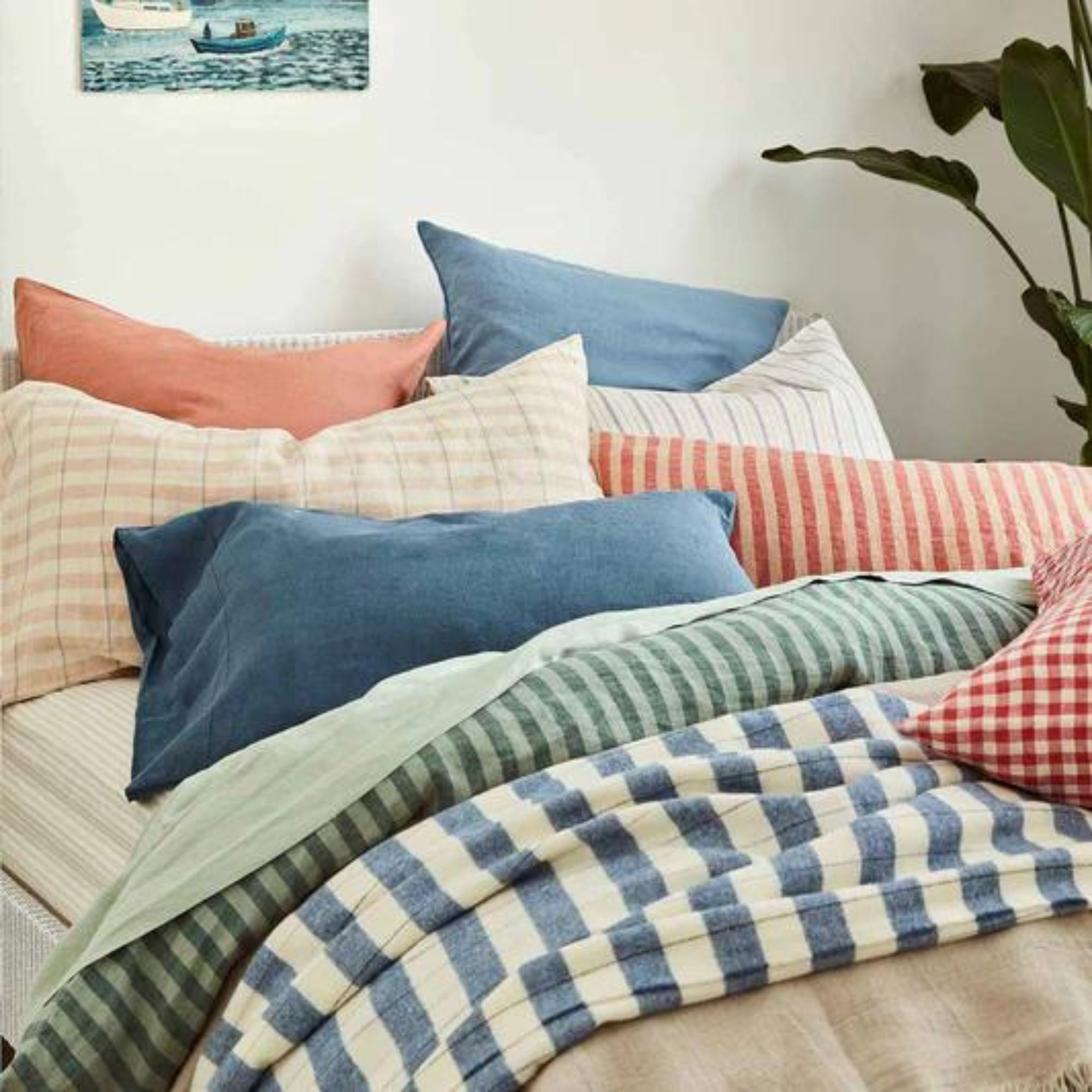
When you shop at Piglet in Bed, you can create a custom bedspread to complement your bedroom color palette. You can choose between bright block shades, wide stripes, and subtle gingham prints that lend depth and dimension to your sheets.
How to mix bed sheets by material
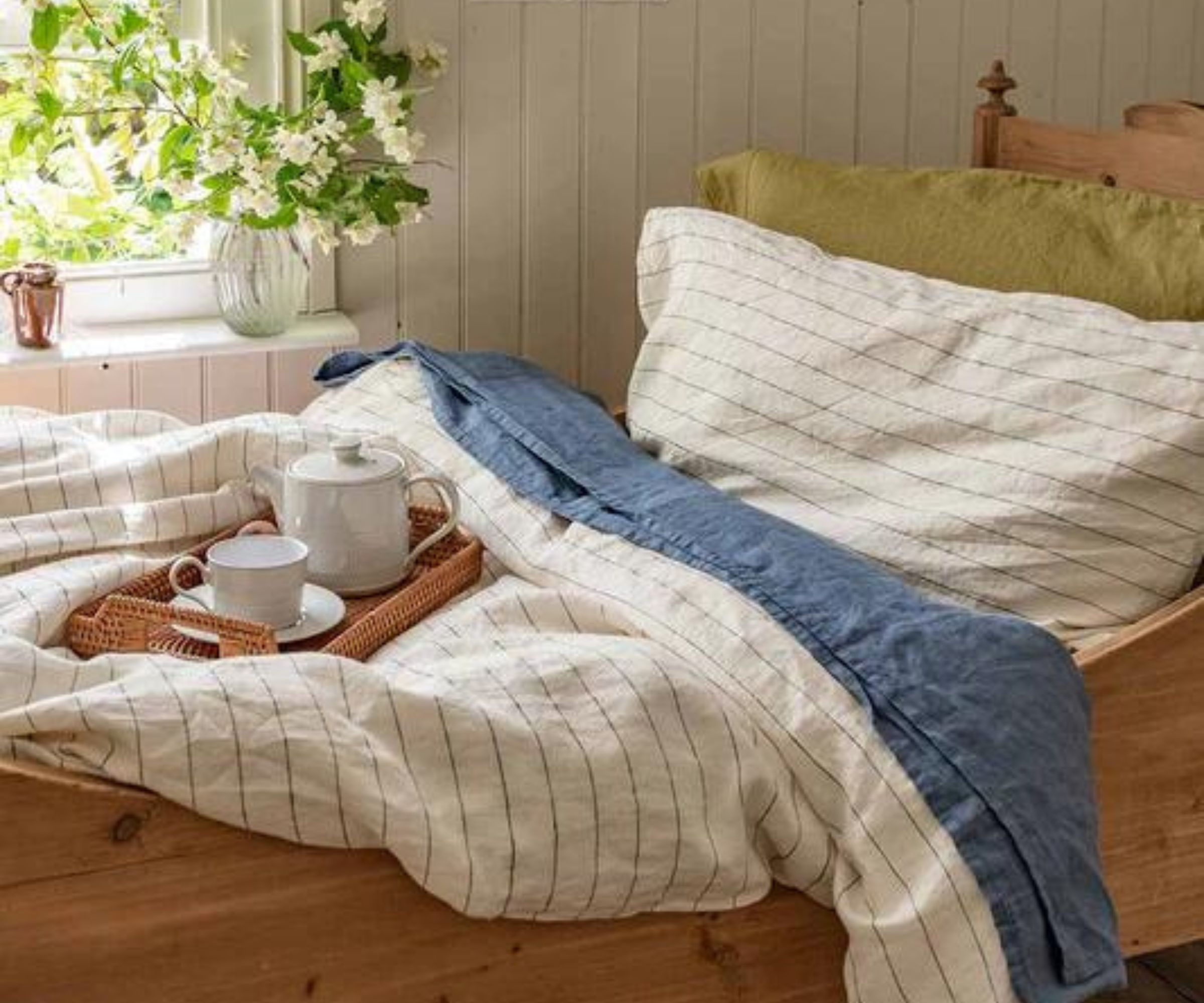
Take a look through your linen closet, and I expect you'll find a few different bed sheet types. In terms of materials, you've almost certainly got a set of cotton sheets, plus the best linen sheets for the summer. If you're an eco-conscious shopper, you might have some bamboo bedding stored away, or even something more adventurous, such as wool, hemp, or eucalyptus.
You could always pair warmer sheets with cooler ones to transition between the seasons. In the spring and fall, I like to sleep with the best warm comforter to keep cozy, but I rest my head on a percale pillowcase, so that I still feel like I'm sleeping on the fresh side of the bed.
A word of warning: too many textures in the same bed could lead to sensory overload. I've tried to pair starchy linen sheets with a silk pillowcase, and I wouldn't recommend it: the contrast kept me up at night, and I had to wash each sheet on a different setting.
I asked bedding designer Parima Ijaz, founder and CEO of Pure Parima, how to mix and match bed sheets by material with style and practicality in mind. 'If you want to mix fabrics, it's smart to stick with cotton sheets for greater versatility,' says Parima. 'Different weaves offer different benefits. If you're a hot sleeper, you might prefer a cooler, crisp fabric, such as percale, while sateen offers a softer, smoother, warmer feel and makes a beautiful bedspread'.

Parima is the founder and CEO at Pure Parima, the luxury bedding brand that uses the finest Egyptian cotton to make the most stylish sheets.
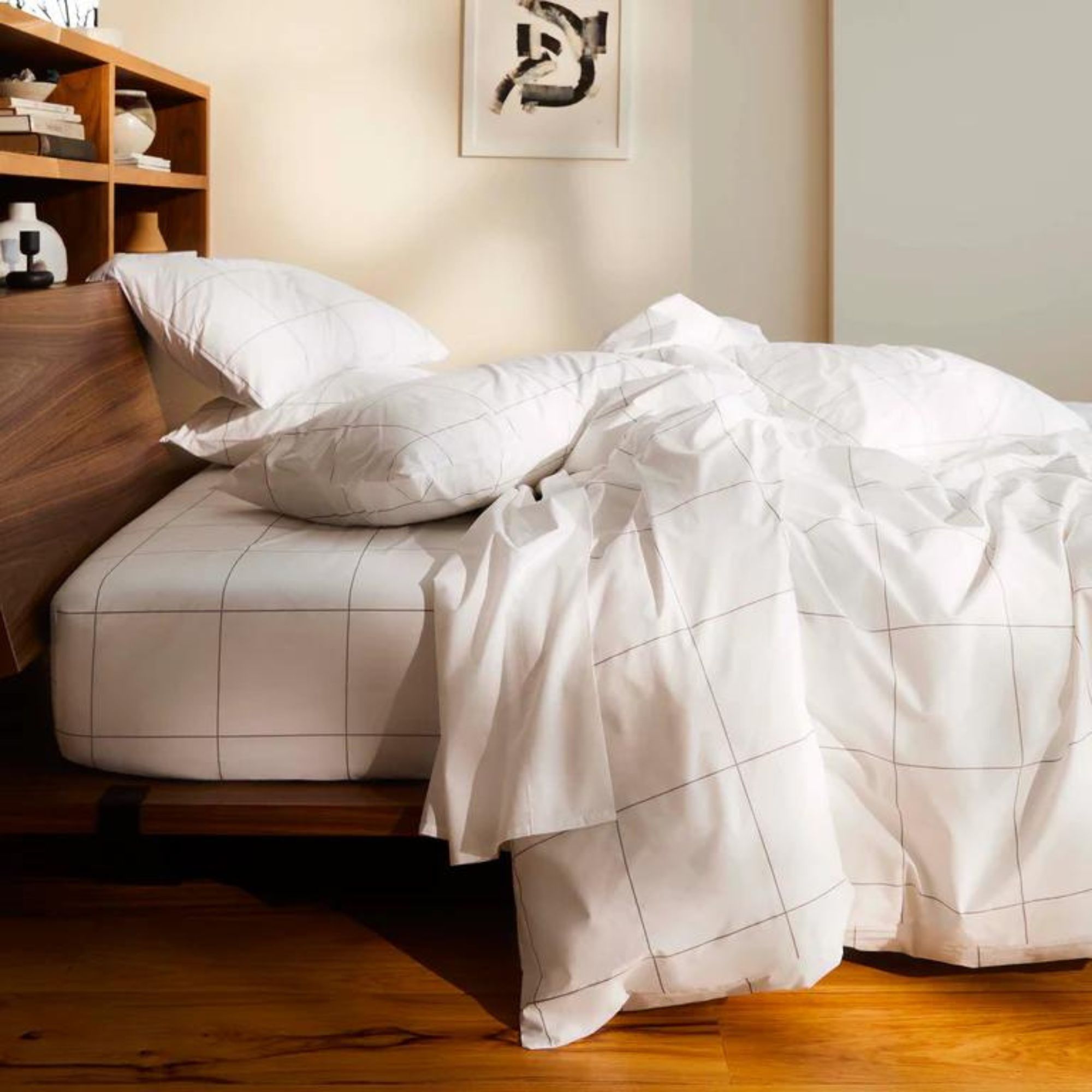
As H&G's resident sleep writer, I've ranked and reviewed dozens of sheet sets. The Brooklinen Luxe Core Sheet Set still comes out on top, every time. Made from long-staple cotton and woven into sateen, these sheets embody affordable luxury.
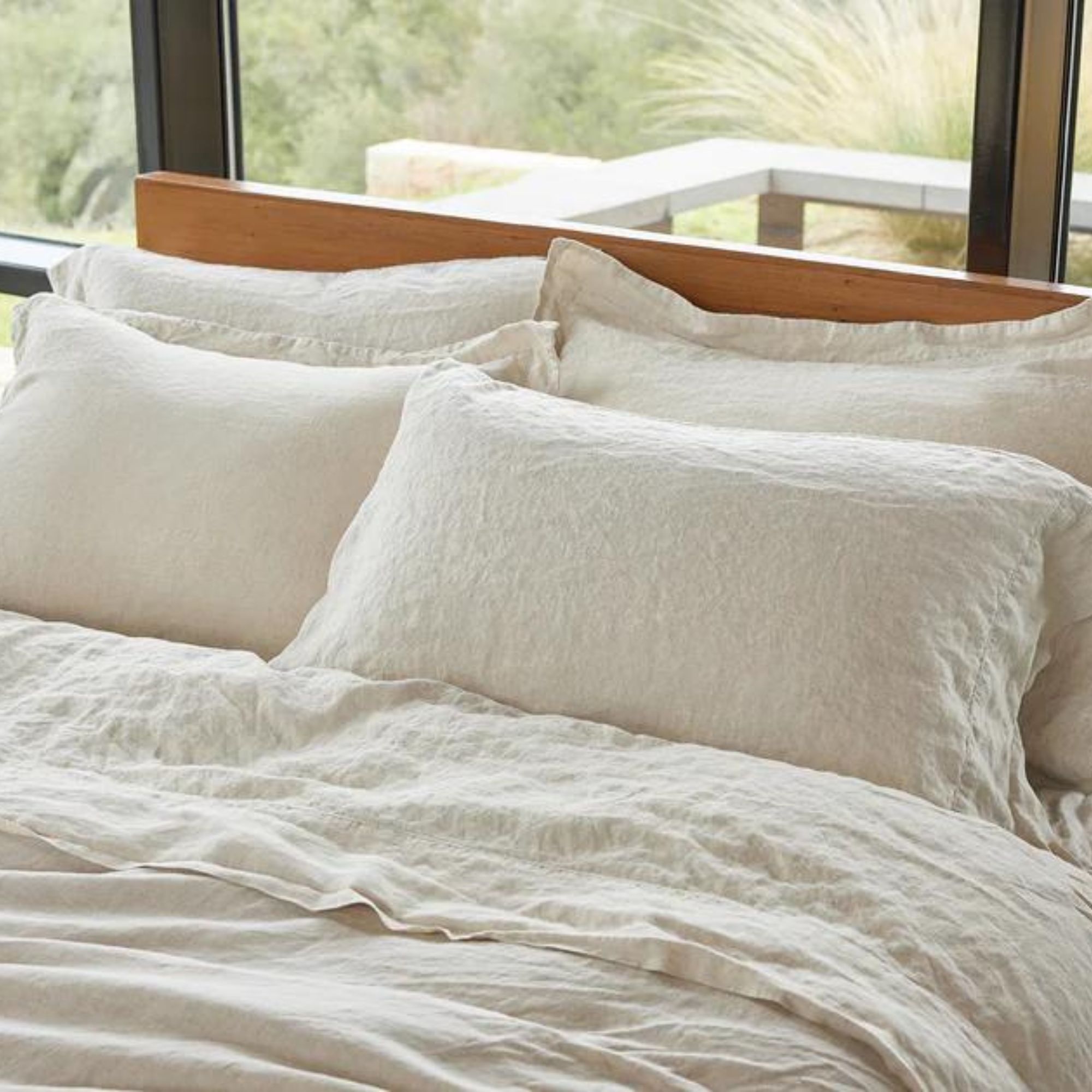
Breathable yet durable, linen is the miracle material that's made for hot sleepers. Yes, it wrinkles, but that's all part of the rustic charm. I love this relaxed set from Coyuchi, which embraces the raw beauty of French flax and natural dyes.
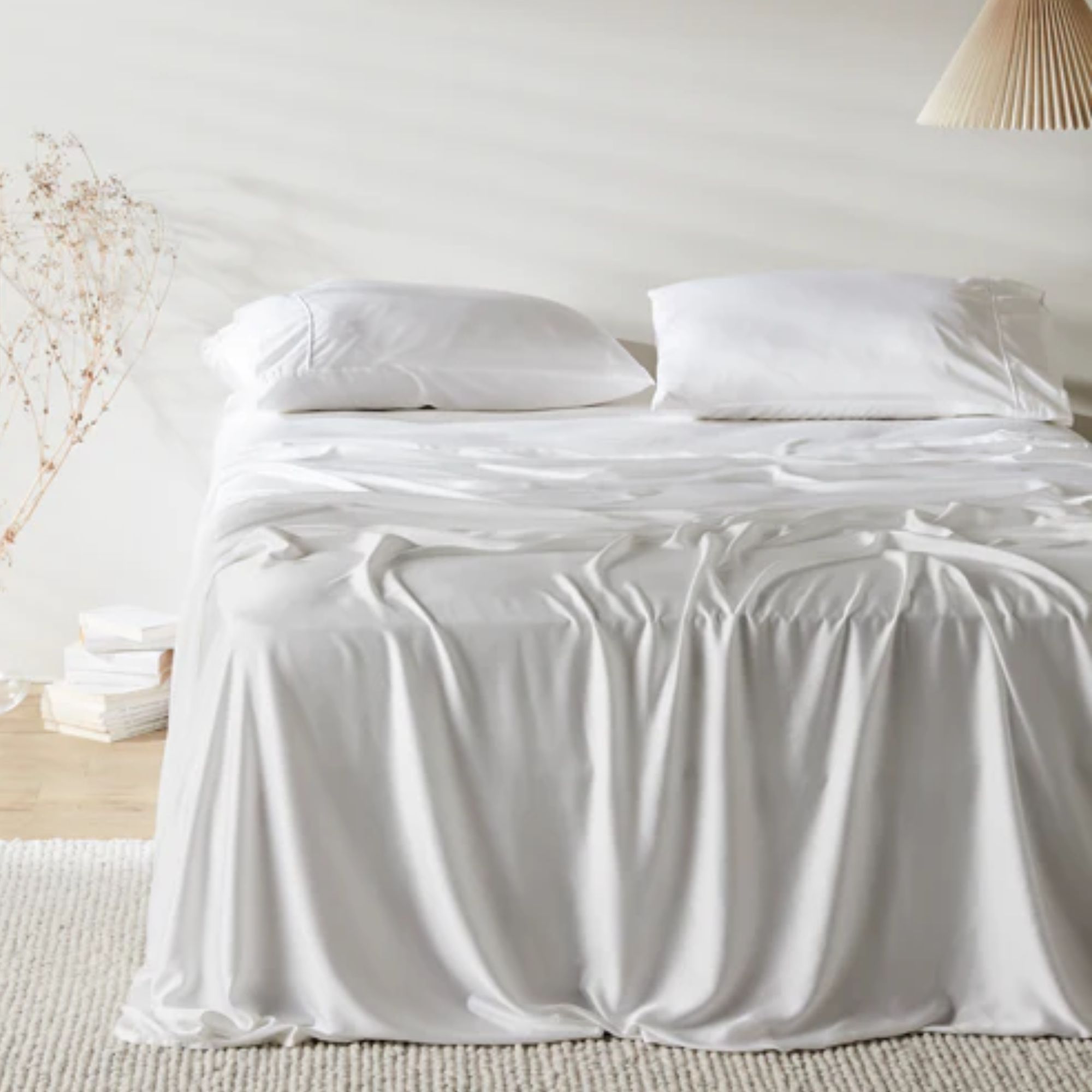
I'll never shut up about these sheets. Made from breathable bamboo lyocell, the Signature Sateen Sheet Set is equally suitable for hot sleepers, eco-conscious shoppers, and anyone with sensitive skin: these sheets are dermatologist-approved.
Our verdict
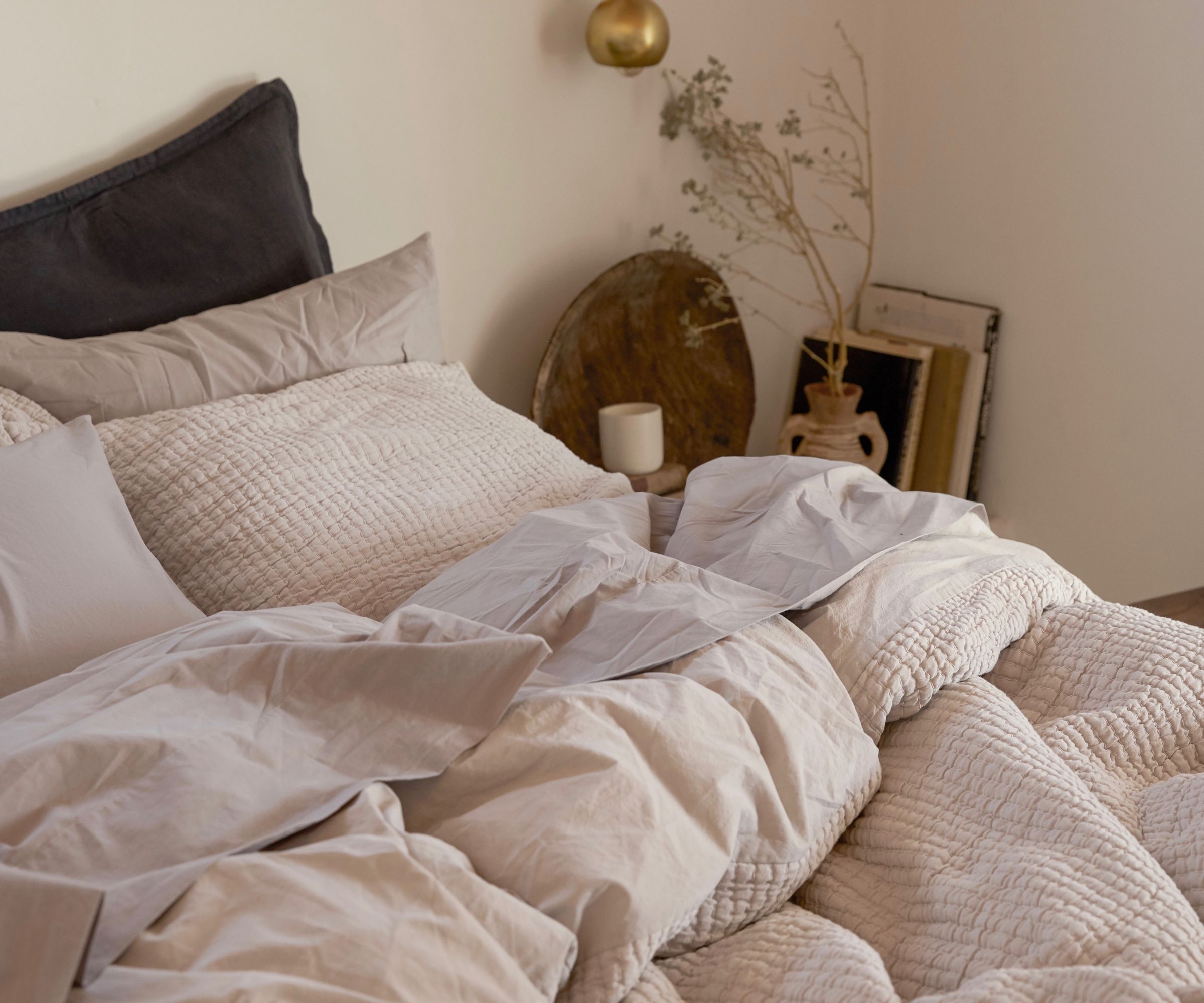
You can absolutely mix your bed sheets to reflect your sense of style and the changes of the seasons. Just keep in mind a few practical considerations. As and when you pair bed sheets from different bedding brands, you should double-check the dimensions of each sheet: some come up a little small, while others are uncomfortably oversized.
Whether you mix bed sheets by color or by material, you might need to wash them on separate cycles to protect the fibers and keep the dyes on one sheet from bleeding into another. It might be worth learning how to wash bed sheets to elongate the life of your bedding.

Emilia is our resident sleep writer. She spends her days tracking down the lowest prices on the best mattresses and bedding and spends her nights testing them out from the comfort of her own home. Emilia leads a team of testers across America to find the best mattress for every sleep style, body type, and budget.
Emilia's quest to learn how to sleep better takes her all around the world, from the 3Z mattress factory in Glendale, Arizona to the Hästens headquarters in Köping, Sweden. She's interviewed luxury bedding designers at Shleep and Pure Parima, as well as the Design Manager at IKEA. Before she joined Homes & Gardens, Emilia studied English at the University of Oxford.